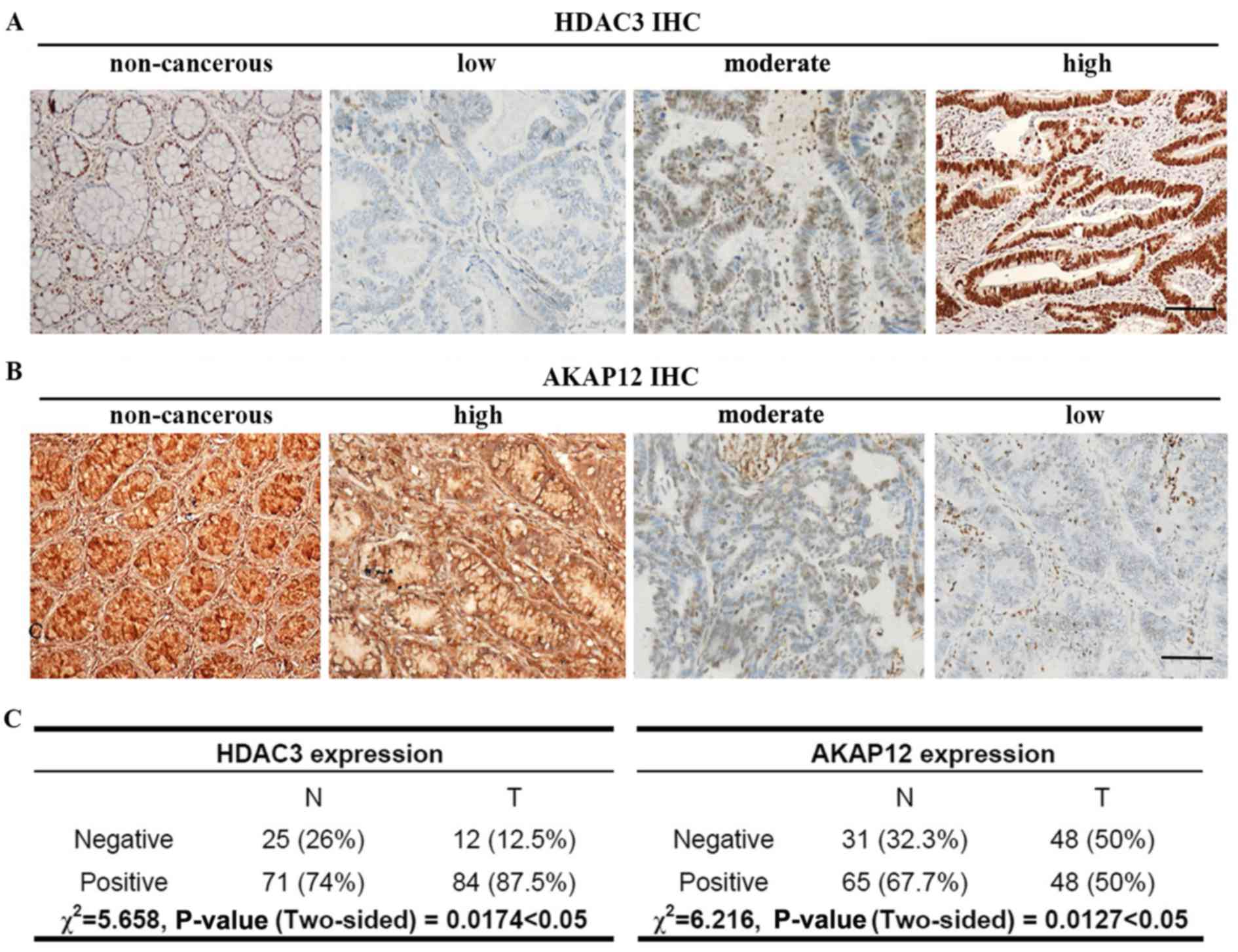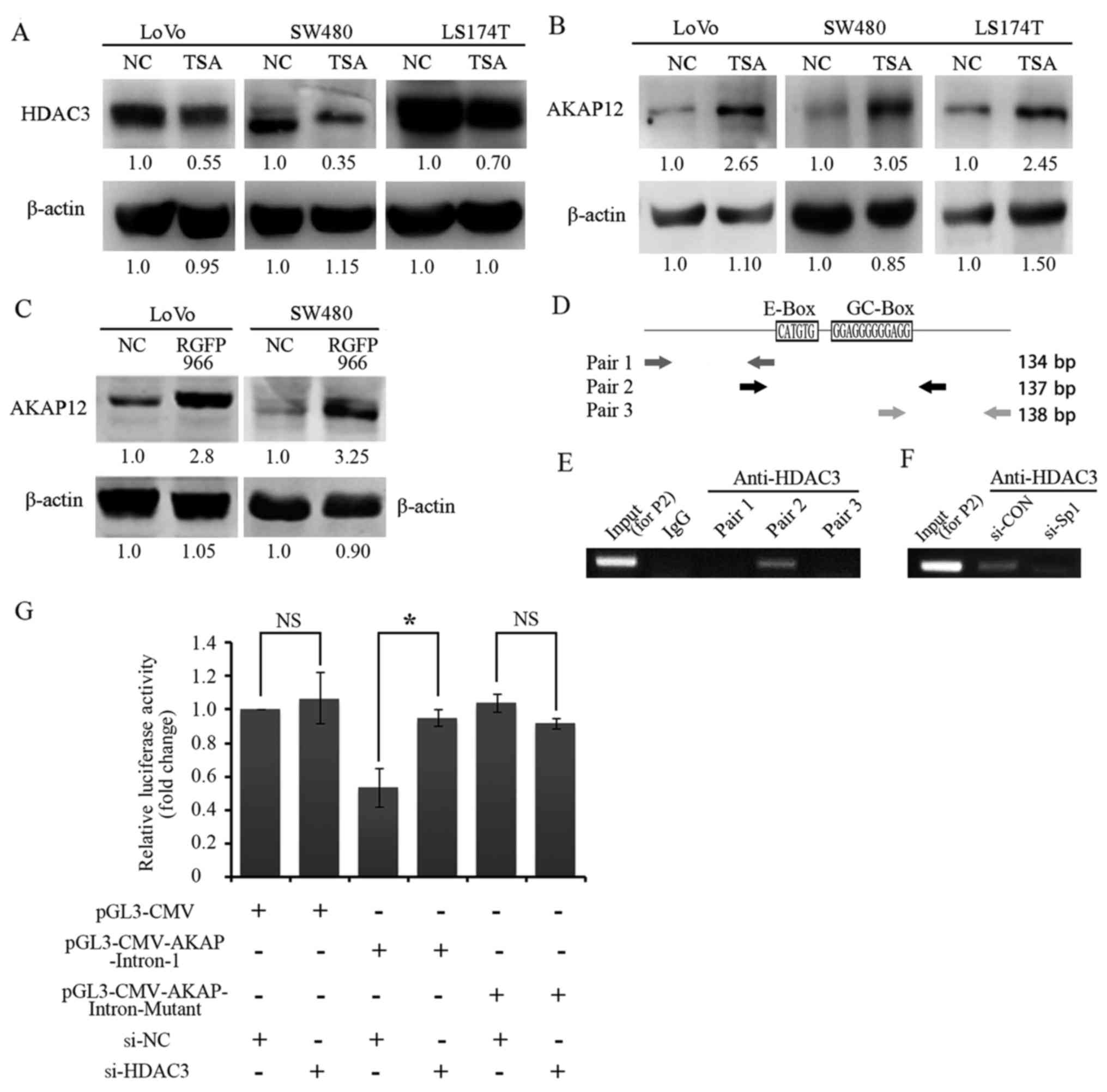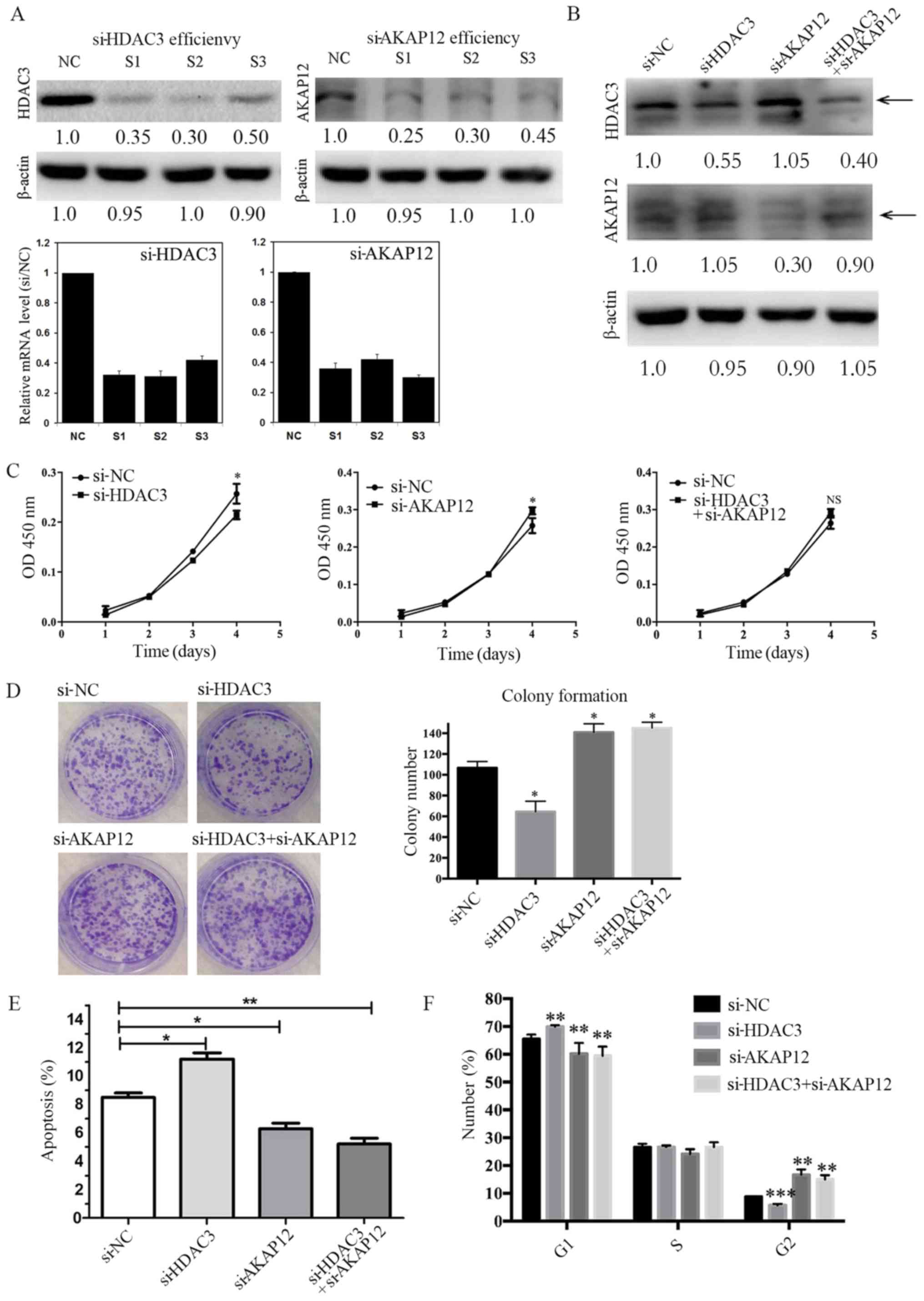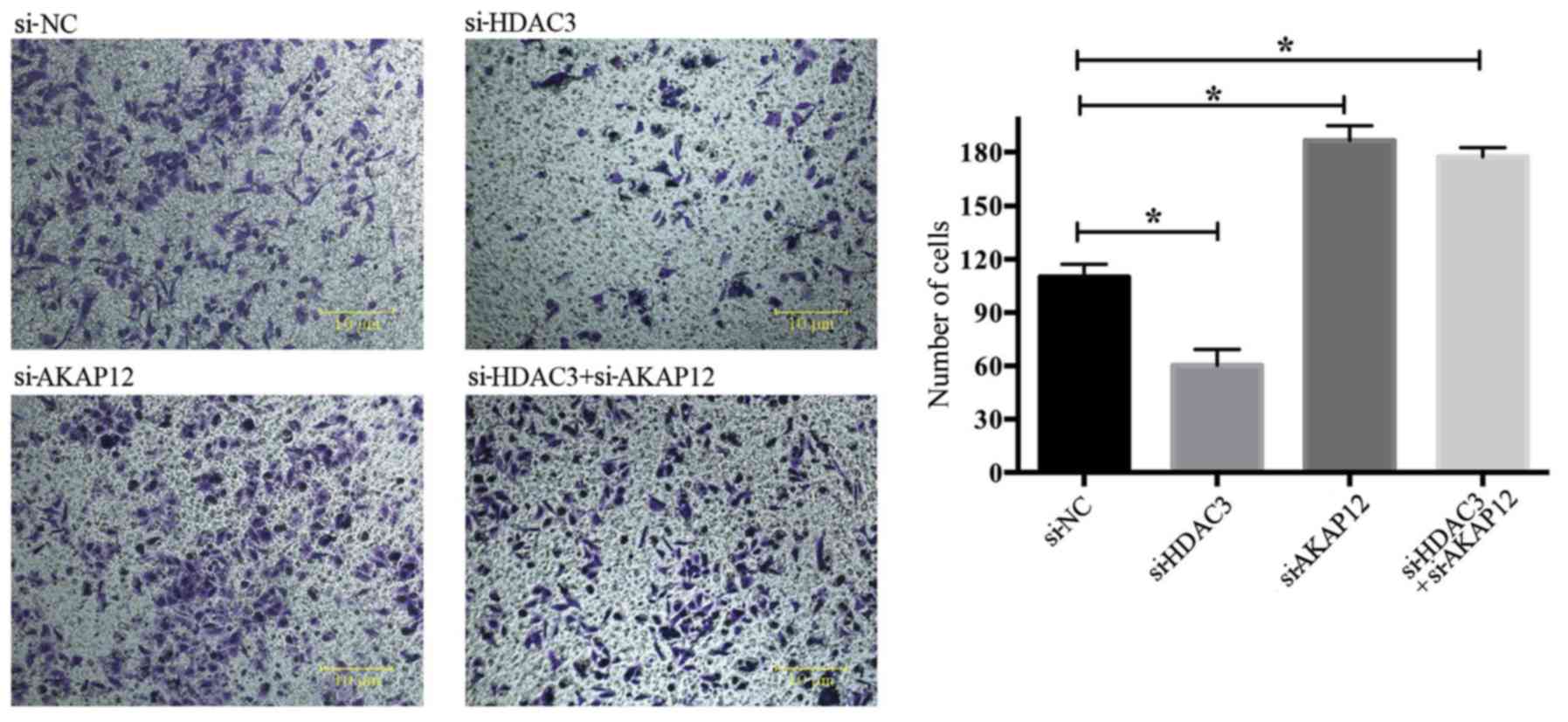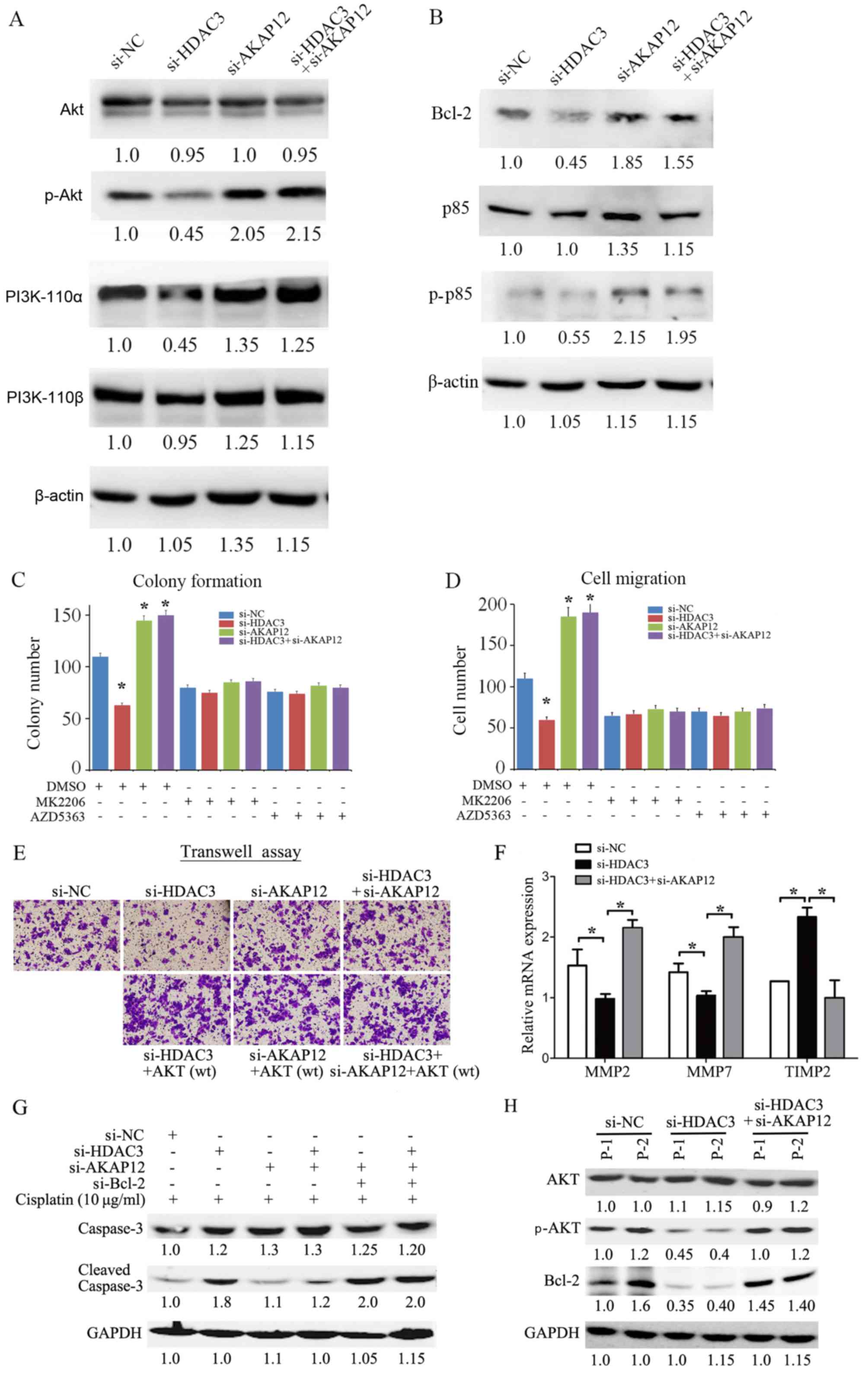|
1
|
Ellina MI, Bouris P, Aletras AJ,
Theocharis AD, Kletsas D and Karamanos NK: EGFR and HER2 exert
distinct roles on colon cancer cell functional properties and
expression of matrix macromolecules. Biochim Biophys Acta.
1840:2651–2661. 2014. View Article : Google Scholar : PubMed/NCBI
|
|
2
|
Kim HJ, Yu MH, Kim H, Byun J and Lee C:
Noninvasive molecular biomarkers for the detection of colorectal
cancer. BMB Rep. 41:685–692. 2008. View Article : Google Scholar : PubMed/NCBI
|
|
3
|
Gordon T, Grove B, Loftus JC, O'Toole T,
McMillan R, Lindstrom J and Ginsberg MH: Molecular cloning and
preliminary characterization of a novel cytoplasmic antigen
recognized by myasthenia gravis sera. J Clin Invest. 90:992–999.
1992. View Article : Google Scholar : PubMed/NCBI
|
|
4
|
Nauert JB, Klauck TM, Langeberg LK and
Scott JD: Gravin, an autoantigen recognized by serum from
myasthenia gravis patients, is a kinase scaffold protein. Curr
Biol. 7:52–62. 1997. View Article : Google Scholar : PubMed/NCBI
|
|
5
|
Finger EC, Castellini L, Rankin EB,
Vilalta M, Krieg AJ, Jiang D, Banh A, Zundel W, Powell MB and
Giaccia AJ: Hypoxic induction of AKAP12 variant 2 shifts
PKA-mediated protein phosphorylation to enhance migration and
metastasis of melanoma cells. Proc Natl Acad Sci USA.
112:4441–4446. 2015. View Article : Google Scholar : PubMed/NCBI
|
|
6
|
Lee SW, Kim WJ, Choi YK, Song HS, Son MJ,
Gelman IH, Kim YJ and Kim KW: SSeCKS regulates angiogenesis and
tight junction formation in blood-brain barrier. Nat Med.
9:900–906. 2003. View
Article : Google Scholar : PubMed/NCBI
|
|
7
|
Liu W, Guan M, Su B, Ye C, Li J, Zhang X,
Liu C, Li M, Lin Y and Lu Y: Quantitative assessment of AKAP12
promoter methylation in colorectal cancer using
methylation-sensitive high resolution melting: Correlation with
Duke's stage. Cancer Biol Ther. 9:862–871. 2010. View Article : Google Scholar : PubMed/NCBI
|
|
8
|
Agrawal A, Murphy RF and Agrawal DK: DNA
methylation in breast and colorectal cancers. Mod Pathol.
20:711–721. 2007. View Article : Google Scholar : PubMed/NCBI
|
|
9
|
Mostafa MR, Yahia RS, Abd El Messih HM,
El-Sisy E and El Ghannam DM: Gravin gene expression in acute
myeloid leukemia. Med Oncol. 30:5482013. View Article : Google Scholar : PubMed/NCBI
|
|
10
|
Guan M, Zhou X, Soulitzis N, Spandidos DA
and Popescu NC: Aberrant methylation and deacetylation of deleted
in liver cancer-1 gene in prostate cancer: Potential clinical
applications. Clin Cancer Res. 12:1412–1419. 2006. View Article : Google Scholar : PubMed/NCBI
|
|
11
|
Jin Z, Hamilton JP, Yang J, Mori Y, Olaru
A, Sato F, Ito T, Kan T, Cheng Y, Paun B, et al: Hypermethylation
of the AKAP12 promoter is a biomarker of Barrett's-associated
esophageal neoplastic progression. Cancer Epidemiol Biomarkers
Prev. 17:111–117. 2008. View Article : Google Scholar : PubMed/NCBI
|
|
12
|
Sikandar S, Dizon D, Shen X, Li Z,
Besterman J and Lipkin SM: The class I HDAC inhibitor MGCD0103
induces cell cycle arrest and apoptosis in colon cancer initiating
cells by upregulating Dickkopf-1 and non-canonical Wnt signaling.
Oncotarget. 1:596–605. 2010.
|
|
13
|
Richon VM, Sandhoff TW, Rifkind RA and
Marks PA: Histone deacetylase inhibitor selectively induces p21WAF1
expression and gene-associated histone acetylation. Proc Natl Acad
Sci USA. 97:10014–10019. 2000. View Article : Google Scholar : PubMed/NCBI
|
|
14
|
Spurling CC, Godman CA, Noonan EJ,
Rasmussen TP, Rosenberg DW and Giardina C: HDAC3 overexpression and
colon cancer cell proliferation and differentiation. Mol Carcinog.
47:137–147. 2008. View
Article : Google Scholar
|
|
15
|
Weichert W, Röske A, Gekeler V, Beckers T,
Ebert MP, Pross M, Dietel M, Denkert C and Röcken C: Association of
patterns of class I histone deacetylase expression with patient
prognosis in gastric cancer: A retrospective analysis. Lancet
Oncol. 9:139–148. 2008. View Article : Google Scholar : PubMed/NCBI
|
|
16
|
Wu J, Du C, Lv Z, Ding C, Cheng J, Xie H,
Zhou L and Zheng S: The up-regulation of histone deacetylase 8
promotes proliferation and inhibits apoptosis in hepatocellular
carcinoma. Dig Dis Sci. 58:3545–3553. 2013. View Article : Google Scholar : PubMed/NCBI
|
|
17
|
Soung YH, Pruitt K and Chung J: Epigenetic
silencing of ARRDC3 expression in basal-like breast cancer cells.
Sci Rep. 4:38462014. View Article : Google Scholar : PubMed/NCBI
|
|
18
|
Lovaas JD, Zhu L, Chiao CY, Byles V,
Faller DV and Dai Y: SIRT1 enhances matrix metalloproteinase-2
expression and tumor cell invasion in prostate cancer cells.
Prostate. 73:522–530. 2013. View Article : Google Scholar
|
|
19
|
Heller G, Schmidt WM, Ziegler B, Holzer S,
Müllauer L, Bilban M, Zielinski CC, Drach J and Zöchbauer-Müller S:
Genome-wide transcriptional response to 5-aza-2′-deoxycytidine and
trichostatin a in multiple myeloma cells. Cancer Res. 68:44–54.
2008. View Article : Google Scholar : PubMed/NCBI
|
|
20
|
Godman CA, Joshi R, Tierney BR, Greenspan
E, Rasmussen TP, Wang HW, Shin DG, Rosenberg DW and Giardina C:
HDAC3 impacts multiple oncogenic pathways in colon cancer cells
with effects on Wnt and vitamin D signaling. Cancer Biol Ther.
7:1570–1580. 2008. View Article : Google Scholar : PubMed/NCBI
|
|
21
|
Wu MZ, Tsai YP, Yang MH, Huang CH, Chang
SY, Chang CC, Teng SC and Wu KJ: Interplay between HDAC3 and WDR5
is essential for hypoxia-induced epithelial-mesenchymal transition.
Mol Cell. 43:811–822. 2011. View Article : Google Scholar : PubMed/NCBI
|
|
22
|
Kim HC, Choi KC, Choi HK, Kang HB, Kim MJ,
Lee YH, Lee OH, Lee J, Kim YJ, Jun W, et al: HDAC3 selectively
represses CREB3-mediated transcription and migration of metastatic
breast cancer cells. Cell Mol Life Sci. 67:3499–3510. 2010.
View Article : Google Scholar : PubMed/NCBI
|
|
23
|
Guenther MG, Barak O and Lazar MA: The
SMRT and N-CoR corepressors are activating cofactors for histone
deacetylase 3. Mol Cell Biol. 21:6091–6101. 2001. View Article : Google Scholar : PubMed/NCBI
|
|
24
|
Togi S, Kamitani S, Kawakami S, Ikeda O,
Muromoto R, Nanbo A and Matsuda T: HDAC3 influences phosphorylation
of STAT3 at serine 727 by interacting with PP2A. Biochem Biophys
Res Commun. 379:616–620. 2009. View Article : Google Scholar : PubMed/NCBI
|
|
25
|
Das C and Kundu TK: Transcriptional
regulation by the acetylation of nonhistone proteins in humans - a
new target for therapeutics. IUBMB Life. 57:137–149. 2005.
View Article : Google Scholar : PubMed/NCBI
|
|
26
|
Arocho A, Chen B, Ladanyi M and Pan Q:
Validation of the 2-DeltaDeltaCt calculation as an alternate method
of data analysis for quantitative PCR of BCR-ABL P210 transcripts.
Diagn Mol Pathol. 15:56–61. 2006. View Article : Google Scholar : PubMed/NCBI
|
|
27
|
Livak KJ and Schmittgen TD: Analysis of
relative gene expression data using real-time quantitative PCR and
the 2(−Delta Delta C(T)) method. Methods. 25:402–408. 2001.
View Article : Google Scholar
|
|
28
|
Yang Y, Lin X, Lu X, Luo G, Zeng T, Tang
J, Jiang F, Li L, Cui X, Huang W, et al: Interferon-microRNA
signalling drives liver precancerous lesion formation and
hepatocarcinogenesis. Gut. 65:1186–1201. 2016. View Article : Google Scholar : PubMed/NCBI
|
|
29
|
Wang X, Xu J, Wang H, Wu L, Yuan W, Du J
and Cai S: Trichostatin A, a histone deacetylase inhibitor,
reverses epithelial-mesenchymal transition in colorectal cancer
SW480 and prostate cancer PC3 cells. Biochem Biophys Res Commun.
456:320–326. 2015. View Article : Google Scholar
|
|
30
|
Fortson WS, Kayarthodi S, Fujimura Y, Xu
H, Matthews R, Grizzle WE, Rao VN, Bhat GK and Reddy ES: Histone
deacetylase inhibitors, valproic acid and trichostatin-A induce
apoptosis and affect acetylation status of p53 in ERG-positive
prostate cancer cells. Int J Oncol. 39:111–119. 2011.PubMed/NCBI
|
|
31
|
Chatterjee N, Wang WL, Conklin T, Chittur
S and Tenniswood M: Histone deacetylase inhibitors modulate miRNA
and mRNA expression, block metaphase, and induce apoptosis in
inflammatory breast cancer cells. Cancer Biol Ther. 14:658–671.
2013. View Article : Google Scholar : PubMed/NCBI
|
|
32
|
Wilson AJ, Byun DS, Popova N, Murray LB,
L'Italien K, Sowa Y, Arango D, Velcich A, Augenlicht LH and
Mariadason JM: Histone deacetylase 3 (HDAC3) and other class I
HDACs regulate colon cell maturation and p21 expression and are
deregulated in human colon cancer. J Biol Chem. 281:13548–13558.
2006. View Article : Google Scholar : PubMed/NCBI
|
|
33
|
Turtoi A, Mottet D, Matheus N, Dumont B,
Peixoto P, Hennequière V, Deroanne C, Colige A, De Pauw E,
Bellahcène A, et al: The angiogenesis suppressor gene AKAP12 is
under the epigenetic control of HDAC7 in endothelial cells.
Angiogenesis. 15:543–554. 2012. View Article : Google Scholar : PubMed/NCBI
|
|
34
|
Minami J, Suzuki R, Mazitschek R, Gorgun
G, Ghosh B, Cirstea D, Hu Y, Mimura N, Ohguchi H, Cottini F, et al:
Histone deacetylase 3 as a novel therapeutic target in multiple
myeloma. Leukemia. 28:680–689. 2014. View Article : Google Scholar
|
|
35
|
Jiang QG, Li TY, Liu DN and Zhang HT:
PI3K/Akt pathway involving into apoptosis and invasion in human
colon cancer cells LoVo. Mol Biol Rep. 41:3359–3367. 2014.
View Article : Google Scholar : PubMed/NCBI
|
|
36
|
Akakura S, Huang C, Nelson PJ, Foster B
and Gelman IH: Loss of the SSeCKS/Gravin/AKAP12 gene results in
prostatic hyperplasia. Cancer Res. 68:5096–5103. 2008. View Article : Google Scholar : PubMed/NCBI
|
|
37
|
Bateman NW, Jaworski E, Ao W, Wang G,
Litzi T, Dubil E, Marcus C, Conrads KA, Teng PN, Hood BL, et al:
Elevated AKAP12 in paclitaxel-resistant serous ovarian cancer cells
is prognostic and predictive of poor survival in patients. J
Proteome Res. 14:1900–1910. 2015. View Article : Google Scholar : PubMed/NCBI
|
|
38
|
Hayashi M, Nomoto S, Kanda M, Okamura Y,
Nishikawa Y, Yamada S, Fujii T, Sugimoto H, Takeda S and Kodera Y:
Identification of the A kinase anchor protein 12 (AKAP12) gene as a
candidate tumor suppressor of hepatocellular carcinoma. J Surg
Oncol. 105:381–386. 2012. View Article : Google Scholar
|
|
39
|
Suren D, Yildirim M, Alikanoglu AS, Kaya
V, Yildiz M, Dilli UD and Sezer C: Lack of relation of AKAP12 with
p53 and Bcl-2 in colorectal carcinoma. Asian Pac J Cancer Prev.
15:3415–3418. 2014. View Article : Google Scholar : PubMed/NCBI
|
|
40
|
Choi MC, Jong HS, Kim TY, Song SH, Lee DS,
Lee JW, Kim TY, Kim NK and Bang YJ: AKAP12/Gravin is inactivated by
epigenetic mechanism in human gastric carcinoma and shows growth
suppressor activity. Oncogene. 23:7095–7103. 2004. View Article : Google Scholar : PubMed/NCBI
|
|
41
|
Burnworth B, Pippin J, Karna P, Akakura S,
Krofft R, Zhang G, Hudkins K, Alpers CE, Smith K, Shankland SJ, et
al: SSeCKS sequesters cyclin D1 in glomerular parietal epithelial
cells and influences proliferative injury in the glomerulus. Lab
Invest. 92:499–510. 2012. View Article : Google Scholar : PubMed/NCBI
|
|
42
|
Gelman IH: Suppression of tumor and
metastasis progression through the scaffolding functions of
SSeCKS/Gravin/AKAP12. Cancer Metastasis Rev. 31:493–500. 2012.
View Article : Google Scholar : PubMed/NCBI
|
|
43
|
Radeva MY, Kugelmann D, Spindler V and
Waschke J: PKA compartmentalization via AKAP220 and AKAP12
contributes to endothelial barrier regulation. PLoS One.
9:e1067332014. View Article : Google Scholar : PubMed/NCBI
|
|
44
|
Schott MB, Gonowolo F, Maliske B and Grove
B: FRET biosensors reveal AKAP-mediated shaping of subcellular PKA
activity and a novel mode of Ca(2+)/PKA crosstalk. Cell Signal.
28:294–306. 2016. View Article : Google Scholar : PubMed/NCBI
|
|
45
|
Pilarsky C, Wenzig M, Specht T, Saeger HD
and Grützmann R: Identification and validation of commonly
overexpressed genes in solid tumors by comparison of microarray
data. Neoplasia. 6:744–750. 2004. View Article : Google Scholar
|
|
46
|
Setia S, Nehru B and Sanyal SN: The
PI3K/Akt pathway in colitis associated colon cancer and its
chemoprevention with celecoxib, a Cox-2 selective inhibitor. Biomed
Pharmacother. 68:721–727. 2014. View Article : Google Scholar : PubMed/NCBI
|
|
47
|
LaBonte MJ, Wilson PM, Fazzone W, Russell
J, Louie SG, El-Khoueiry A, Lenz HJ and Ladner RD: The dual
EGFR/HER2 inhibitor lapatinib synergistically enhances the
antitumor activity of the histone deacetylase inhibitor
panobinostat in colorectal cancer models. Cancer Res. 71:3635–3648.
2011. View Article : Google Scholar : PubMed/NCBI
|
|
48
|
Ye Y, Jin L, Wilmott JS, Hu WL, Yosufi B,
Thorne RF, Liu T, Rizos H, Yan XG, Dong L, et al: PI(4,5)P2
5-phosphatase A regulates PI3K/Akt signalling and has a tumour
suppressive role in human melanoma. Nat Commun. 4:15082013.
View Article : Google Scholar : PubMed/NCBI
|















